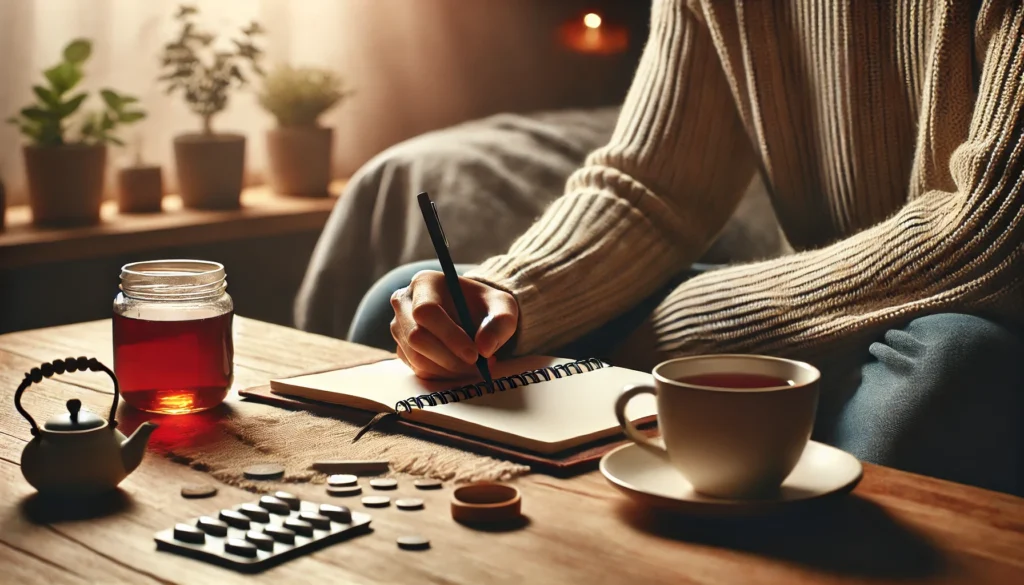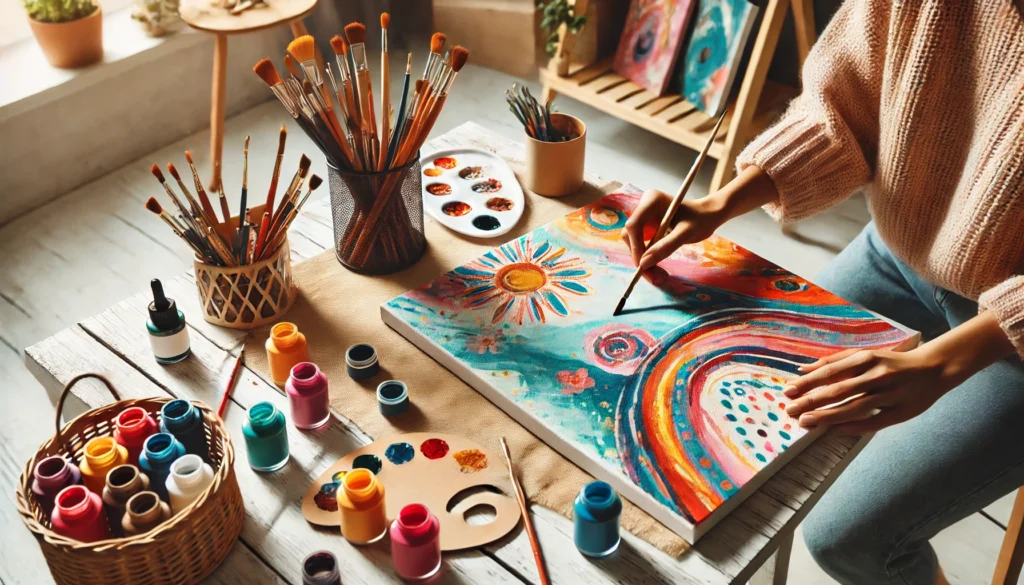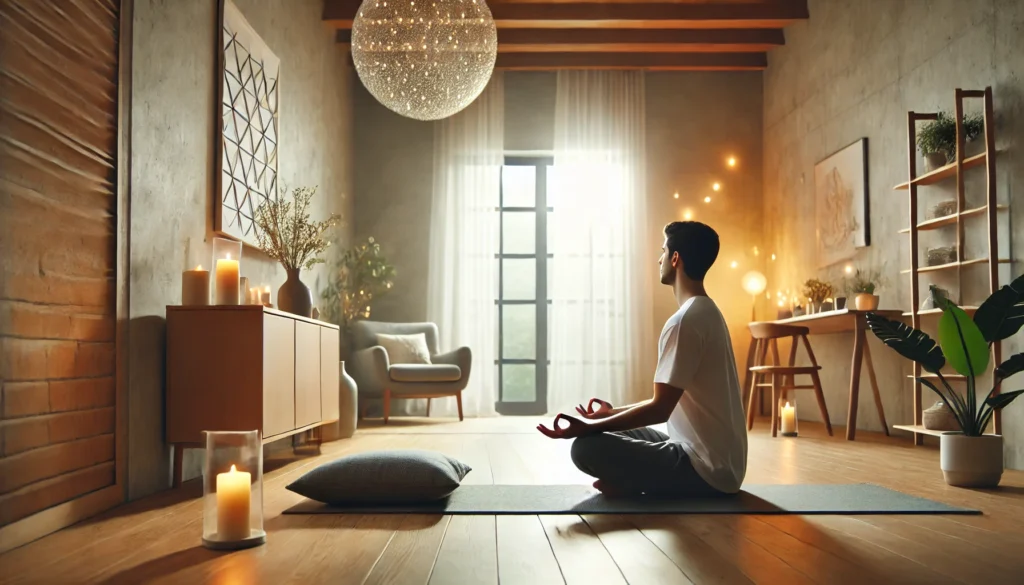Anxiety is not merely a fleeting feeling of nervousness; it is a complex condition that can impact every aspect of one’s life. While occasional anxiety is normal, chronic anxiety can lead to significant disruptions in daily activities. Understanding the mechanisms of anxiety is crucial in developing effective coping strategies.
You may also like: Stress Relief: Sentences to Calm Your Mind
The Psychological and Physiological Effects
Anxiety can manifest through a variety of psychological symptoms, including excessive worrying, irritability, and concentration difficulties. Physically, it may present as increased heart rate, sweating, or gastrointestinal issues. This dual impact highlights the importance of a comprehensive approach to treatment, addressing both mental and physical symptoms.
The Societal Impact of Anxiety
On a broader scale, anxiety can influence societal productivity and quality of life. It can affect one’s ability to work, socialize, and maintain personal relationships, leading to a ripple effect that touches families, communities, and economies. Understanding this impact underscores the importance of accessible anxiety management strategies.
The Role of Genetics and Environment
Research suggests that both genetic predispositions and environmental factors contribute to anxiety disorders. Traumatic experiences, chronic stress, and even upbringing can significantly shape one’s susceptibility to anxiety. Recognizing these factors can aid in tailoring individualized coping strategies.
Historical Context of Anxiety Treatment
The treatment of anxiety has evolved considerably over the years. From ancient practices of meditation and herbal remedies to contemporary cognitive-behavioral therapy (CBT) and pharmacotherapy, the approaches have been as diverse as they are numerous. Today, the focus has shifted towards holistic and integrative methods that combine traditional and modern techniques, emphasizing the importance of coping skills in managing anxiety.
Ancient Practices and Their Modern Relevance
Historically, societies have relied on natural remedies and spiritual practices to treat anxiety. Herbal teas, meditation, and rituals were common. Today, many of these practices are revisited and integrated into modern therapies, highlighting their enduring relevance.
The Evolution of Psychotherapy
Since the early 20th century, psychotherapy has undergone significant transformations. From Freudian psychoanalysis to the development of CBT, these methodologies have shaped how mental health professionals address anxiety today, emphasizing the importance of understanding thought patterns.
Pharmacotherapy and Its Developments
The introduction of anti-anxiety medications in the mid-20th century marked a significant advancement. However, the focus is increasingly shifting towards minimizing medication reliance, favoring integrative approaches that prioritize lifestyle changes and coping skills.

Top 10 Coping Skill Activities for Anxiety
1. Mindfulness Meditation
Mindfulness meditation is a practice that encourages individuals to focus on the present moment without judgment. It has roots in ancient Buddhist traditions but has gained popularity in modern psychology as an effective way to reduce anxiety.
The Science Behind Mindfulness
Mindfulness alters brain regions associated with perception, body awareness, pain tolerance, emotion regulation, and complex thinking. Studies show that regular practice can reduce the density of brain areas related to anxiety, enhancing overall mental clarity and calmness.
Implementing Mindfulness in Daily Life
Incorporating mindfulness doesn’t require significant time investment. Short, regular sessions can be more effective than sporadic, longer sessions. Techniques like mindful eating or walking can seamlessly integrate mindfulness into daily routines.
Overcoming Common Barriers to Mindfulness
Many individuals find it challenging to maintain a regular mindfulness practice due to time constraints or difficulty focusing. Setting realistic goals and understanding that mindfulness is a skill that improves with practice can help overcome these barriers.
2. Deep Breathing Exercises
Deep breathing exercises are a simple yet powerful tool to manage anxiety. By focusing on your breath, you can activate the body’s relaxation response, which counteracts the stress response triggered by anxiety.
Understanding the Relaxation Response
The relaxation response is the body’s way of reversing the stress response. Controlled breathing techniques stimulate the parasympathetic nervous system, promoting a state of calmness and reducing anxiety symptoms.
Popular Breathing Techniques
Techniques like diaphragmatic breathing, box breathing, and the 4-7-8 method are widely used. Each technique offers a unique approach to managing stress and can be tailored to fit individual preferences and situations.
Practicing Breathing Exercises in Different Settings
Breathing exercises can be practiced anywhere, from the privacy of your home to a crowded subway. Their adaptability makes them a versatile tool in the anxiety management toolkit, easily fitting into any lifestyle.
3. Progressive Muscle Relaxation
Progressive Muscle Relaxation (PMR) involves tensing and then releasing different muscle groups in the body. This activity helps relieve physical tension that often accompanies anxiety.
The Origins and Effectiveness of PMR
Developed in the 1920s, PMR has stood the test of time due to its effectiveness. By systematically relaxing muscles, it helps decrease the physical manifestations of stress, promoting a state of overall relaxation.
Step-by-Step Guide to PMR
Begin by finding a quiet space and sitting comfortably. Start with your toes, tense the muscles for five seconds, and then release for 10 seconds. Gradually work your way up, focusing on each muscle group, from legs to the neck and shoulders.
Integrating PMR into Your Routine
To maximize benefits, integrate PMR into your daily routine, perhaps as part of a morning or bedtime ritual. Regular practice can enhance its calming effects, making it easier to manage anxiety over time.
4. Journaling
Journaling is an excellent way to express and process emotions. It provides a safe space to explore thoughts and feelings that may be contributing to your anxiety.
The Therapeutic Benefits of Journaling
Journaling offers a private outlet for self-reflection and emotional processing. By writing down thoughts and feelings, individuals can gain clarity and distance from their anxiety, leading to deeper self-understanding.
Different Journaling Techniques
Free writing, gratitude journaling, and structured prompts are popular methods. Each technique offers a unique approach to exploring emotions, allowing individuals to find the style that best suits their needs.
Overcoming Writer’s Block
Many people feel overwhelmed at the thought of starting a journal. Overcoming this barrier involves setting aside judgment, starting with small, regular entries, and allowing thoughts to flow naturally without self-censorship.
5. Physical Exercise
Engaging in regular physical exercise is a well-documented method to reduce anxiety. Exercise releases endorphins, which are natural mood elevators, and helps decrease stress hormones like cortisol.
The Psychological Benefits of Exercise
Exercise not only enhances physical health but also significantly impacts mental well-being. Regular activity can improve sleep, boost self-esteem, and increase overall resilience against stress.
Choosing the Right Type of Exercise
Finding an exercise routine that aligns with personal interests is crucial. Whether it’s group sports, solitary running, or mindful yoga, the key is consistency and enjoyment, which will encourage long-term commitment.
Incorporating Exercise into a Busy Schedule
Even short, 10-minute bursts of activity can be beneficial. Integrating exercise into daily life can be as simple as taking the stairs, walking during lunch breaks, or joining a local class that fits your schedule.
6. Art Therapy
Art therapy involves using creative processes like painting, drawing, or sculpting to explore emotions and reduce anxiety.
The Healing Power of Creativity
Engaging in art can serve as a powerful outlet for emotional expression. The creative process itself can be meditative, helping to focus the mind away from anxiety and towards a state of flow and relaxation.
Art Therapy Techniques and Applications
From structured sessions with a therapist to casual doodling at home, art therapy can be tailored to individual preferences. Techniques like mandala drawing or collage making can guide individuals in exploring their inner worlds.
Accessibility and Inclusivity in Art Therapy
Art therapy is accessible to all, regardless of artistic ability. The focus is on the process, not the product, making it an inclusive tool for anyone seeking to manage anxiety through creative expression.
7. Visualization Techniques
Visualization involves creating mental images to take a mental break from anxiety-inducing thoughts.
The Science of Visualization
Visualization activates the brain’s neural pathways, similar to physical actions, helping to reduce stress and anxiety. This mental rehearsal can prepare the body and mind for real-life stressors by fostering a sense of preparedness and calm.
Techniques for Effective Visualization
Effective visualization involves engaging all senses to create vivid mental images. Techniques like guided imagery or envisioning positive outcomes can help in managing anxiety by shifting focus from stressors to calming scenarios.
Incorporating Visualization into Daily Routines
Spending just a few minutes each day on visualization can make a significant difference. This practice can be seamlessly integrated into morning routines or used as a quick mental reset during the day.
8. Social Support Networks
Building strong social support networks is crucial for managing anxiety. Sharing your feelings with someone you trust can provide comfort and perspective.
The Importance of Connection
Human connection is a powerful antidote to anxiety. Engaging with supportive friends and family members can alleviate feelings of isolation, providing a sense of belonging and understanding.
Cultivating Supportive Relationships
Building a strong support network involves nurturing relationships through regular communication and shared activities. Openly expressing needs and offering reciprocal support can strengthen these bonds.
Leveraging Online Communities
Online communities can be valuable resources for those seeking support. Virtual groups and forums offer a platform to connect with others who understand similar experiences, providing additional comfort and advice.
9. Cognitive-Behavioral Techniques
Cognitive-behavioral techniques involve identifying and challenging negative thought patterns that contribute to anxiety.
The Principles of CBT
CBT is based on the idea that thoughts, feelings, and behaviors are interconnected. By altering negative thought patterns, individuals can change their emotional responses and behaviors, reducing anxiety symptoms.
Practical Applications of CBT
Working with a therapist or utilizing self-help resources can guide individuals in identifying and restructuring distorted thoughts. Techniques like thought records and behavioral experiments can help in applying CBT principles in everyday life.
Self-Help CBT Resources
For those unable to access therapy, numerous self-help books and online resources provide CBT techniques. These tools offer structured exercises and insights, empowering individuals to manage anxiety independently.
10. Aromatherapy
Aromatherapy uses essential oils to promote relaxation and reduce anxiety.
The Science Behind Aromatherapy
Essential oils interact with the brain’s limbic system, influencing emotions and memory. This interaction can promote relaxation and alleviate anxiety, offering a sensory approach to stress management.
Popular Essential Oils for Anxiety
Lavender, chamomile, and eucalyptus are renowned for their calming properties. These oils can be used in diffusers, added to baths, or applied topically with a carrier oil to enhance relaxation.
Safety and Best Practices
When using essential oils, it’s important to follow safety guidelines. Diluting oils before applying to the skin and consulting with professionals can prevent adverse reactions, ensuring a safe aromatherapy experience.

The Future of Anxiety Management
As our understanding of anxiety evolves, so do the methods for managing it. Future trends in coping skill activities may include personalized approaches using technology, such as apps that provide real-time feedback and virtual therapy sessions.
The Rise of Digital Therapeutics
Digital therapeutics offer new ways to manage anxiety through apps and online platforms. These tools provide personalized feedback, track progress, and offer interactive exercises that can complement traditional therapies.
Virtual Reality and Anxiety
Virtual reality (VR) is emerging as a promising tool for anxiety management. By immersing individuals in controlled, anxiety-inducing environments, VR can help desensitize and reduce phobias, offering a new dimension to exposure therapy.
Personalized Mental Health Solutions
Advancements in technology and data analytics are paving the way for personalized mental health solutions. Tailoring interventions to individual needs and preferences can enhance the effectiveness of anxiety management strategies.

Conclusion
Coping skill activities offer a range of strategies to help manage anxiety effectively. By incorporating these activities into your daily routine, you can build resilience and improve your overall well-being. Whether you are a health and wellness coach, a science journalist, or a biohacker, understanding and utilizing these coping skills can enhance your ability to support yourself and others in the journey towards mental wellness.
Embracing a Holistic Approach
Combining various coping skills can lead to a more holistic approach to anxiety management. By addressing the mental, physical, and emotional aspects of anxiety, individuals can achieve a balanced, comprehensive strategy for well-being.
Encouraging Ongoing Education and Awareness
Raising awareness about anxiety and its management is crucial. Continued education can empower individuals to seek help, adopt new strategies, and reduce the stigma associated with mental health challenges.
Supporting Others in Their Journey
Understanding these coping skills not only benefits personal well-being but also equips individuals to support others. By sharing knowledge and experiences, we can foster a community of empathy and resilience, encouraging positive mental health for all.
Further Reading:
10 Fun Activities to Teach Kids COPING SKILLS
Practical Ways to Help Kids Handle Big Feelings
15 Engaging Coping Skills Activities for Kids to Build Resilience for Life
Important Note: The information contained in this article is for general informational purposes only, and should not be construed as health or medical advice, nor is it intended to diagnose, prevent, treat, or cure any disease or health condition. Before embarking on any diet, fitness regimen, or program of nutritional supplementation, it is advisable to consult your healthcare professional in order to determine its safety and probable efficacy in terms of your individual state of health.
Regarding Nutritional Supplements Or Other Non-Prescription Health Products: If any nutritional supplements or other non-prescription health products are mentioned in the foregoing article, any claims or statements made about them have not been evaluated by the U.S. Food and Drug Administration, and such nutritional supplements or other health products are not intended to diagnose, treat, cure, or prevent any disease.


